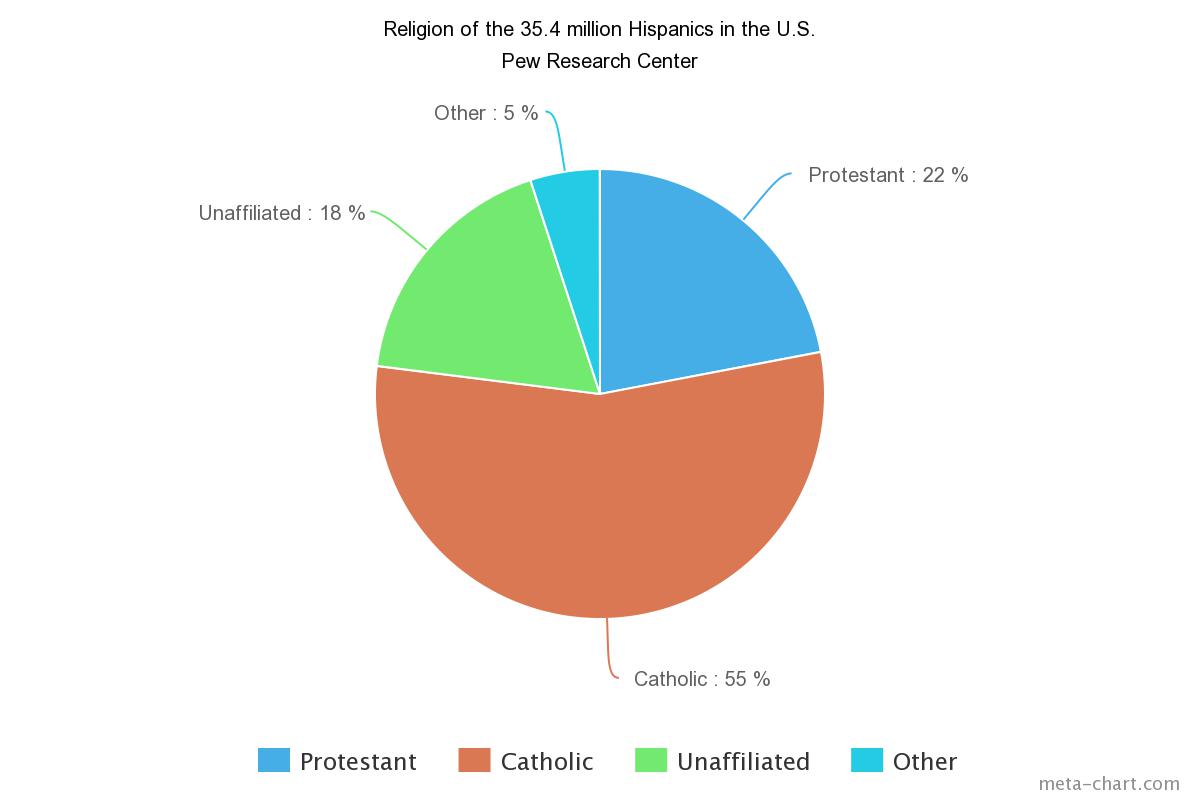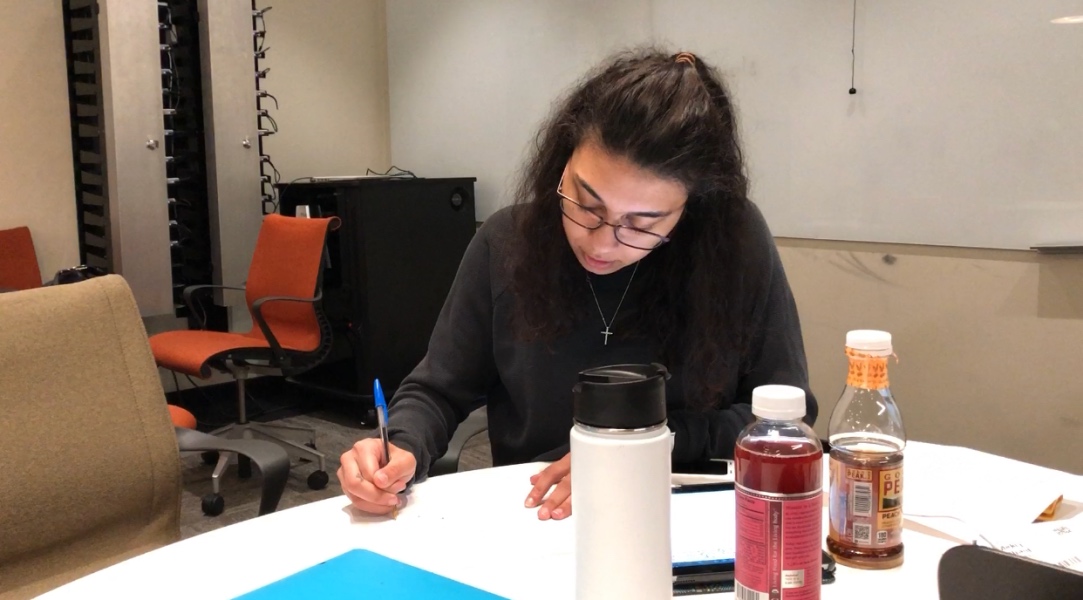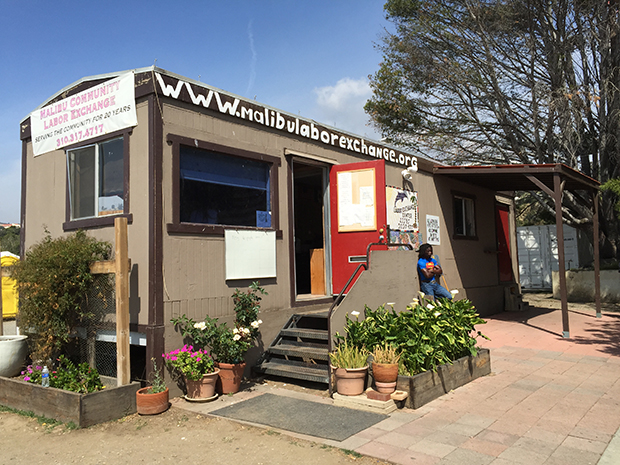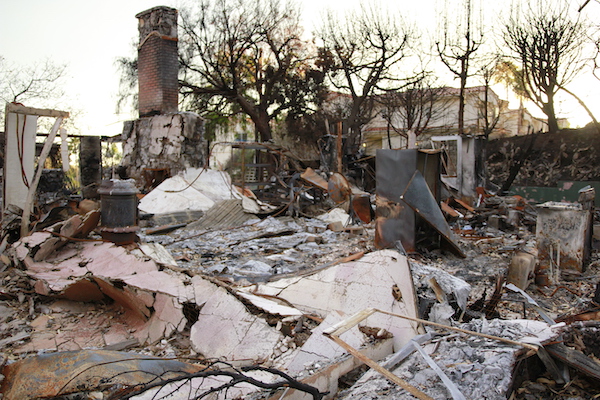
Climate change has made all weather more severe.
Students and faculty members at Pepperdine University have experienced significant natural phenomena in Malibu and at home. A Pepp Post poll of 53 students found that roughly 91 percent believe that humans speed up the process of climate change. However, the poll showed wide debate about what humans could do to stop it.
“It’s very hard to change people’s minds, particularly older Americans,” Religion Professor Chris Doran said. “The easiest way to get them to start thinking about that is to show them images particularly of how climate change is impacting poorer nations, or developing more countries, or humans that are not able to adapt as quickly as we are in the States.”
As Pepperdine’s community continues to grapple with climate change’s impact on the surrounding area, some members are working on how to mitigate its effects.
Pepperdine students respond to climate change
The poll found that 83 percent of students surveyed believe that climate change is both human caused and naturally occuring.
While most students agreed that humans are responsible for climate change, they were uncertain of the extent to which humans are guilty.
“It would be kind of strange if we thought we haven’t contributed to it,” Victoria Kaijser, senior nutritional science major, said. “But I don’t believe there’s a way of knowing how much we contribute because there’s not really a way of knowing what climate change would be like if humans haven’t lived on Earth.”
Many students and members at Pepperdine University agreed that people should change their attitudes toward the Earth. However, not everyone is willing to sacrifice their daily commodities in an attempt to save the planet.
“If we all recycled, that would make a great impact but if just one person changes and no one else does, that’s not a big deal, right?” said David Fraley, senior mathematics and music major. “So each individual person should think like ‘OK, well this is a positive externality; if everyone did this, then it would be good. Therefore, I should do it.’”
Students differed in their opinions on the most effective ways to fight climate issues. The poll found that 81.5 percent believe that saving energy is the best solution, followed by taking public transportation.
However, the poll also shows a small percentage of students who believe that there is nothing humans can do.
“Even if we’re not the dominant cause of climate change, I think humans have an effect on it,” said Marcela Ferrarone, sophomore theatre and media production major. “And if we can help in any ways, then we should do it.”
Most students think that the government should implement stricter laws or incentives toward improving the planet. The poll found that 19 percent thought that the government should promote green energy and roughly 15 percent believed that the government should reduce carbon dioxide emissions.
At the opposite extreme, 0.4 percent believe that the government has enough power already.
“I think that we should make an effort to be mindful of how we live our lives but as a collective, be supportive of what’s happening on the planet,” Matt Rosato, sophomore sports administration major, said.
However, Kaijser said he believes that a more individualistic approach is a better solution toward environmental problems.
“I don’t think with things like this it is good to come out with really big plans of how we’re going to save the Earth,” Kaijser said. “I think it’s better for everyone to take personal responsibility and think about the little things you can do in your life.”
Climate change around the world
2018 was a critical year as “Earth’s climate is [now] changing faster than at any point in the history of modern civilization, primarily as a result of human activities,” according to the U.S. Global Change Research Program.
Because of the excessive amounts of carbon dioxide and greenhouse gases produced by humans and absorbed by the oceans, “in 2018 we’re 1.5 degrees Fahrenheit warmer than the 1951 to 1980 mean,” NASA’s scientists said at the Goddard Institute for Space Studies in New York.
Global climate change affected multiple regions of the country as well as “many sectors of the economy that are expected to grow in the coming decades,” according to the U.S. Global Research Program,
Millions of people are experiencing melting ice close to their homes, as global warming is affecting the glacier lakes, Nadja Popovich wrote in a Feb. 5 New York Times article.
“Without winter ice, lakes begin warming earlier in the year,” Popovich wrote. “Warmer surface water increases the risk of toxic algal blooms and decreases oxygen levels in a lake, putting stress on fish and other organisms.”
Wildfires were also a big issue in 2018, as 8.5 million acres nationwide burned down last year, California being on top of the list, Umair Irfan wrote in a Nov. 19 Vox article.
While “it’s important to keep in mind that wildfires are a normal phenomenon,” Irfan said, “[What] we’re seeing now [is] hardly a force of nature at this point. At almost every step, human activity has exacerbated the risks, the damages and the harms from fires.”
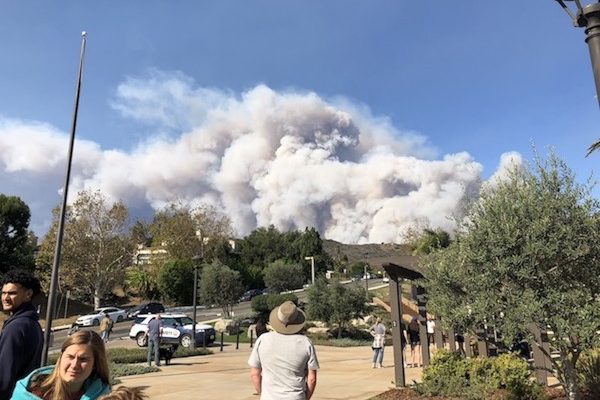
Climate change on Pepperdine campus and in Malibu
Malibu and the coast of California have encountered severe droughts up until this spring’s rainfall. As a result, the community experienced harsh environmental struggles. The Woolsey Fire left its foot print all along the coast, burning more than 96,000 acres and leaving three people dead, according to CA.gov.
Long-lasting heavy rainfalls and floods followed. As a result, mudslides and debris, mainly in the burnt areas, endangered the safety of people and wild animals.
“We’ve always had El Nino events that are causing a lot of rainfall and mudslides and maybe other problems with this type of coastal areas,” Marine Biology Professor Karen Martin said. “But recently they’ve become stronger and possibly more severe and more frequent as well.”
Wildlife suffered an immense loss too. Rising temperatures and ocean pollution is causing a rabies-like disease in Sea Stars known as the Sea-Star Wasting disease. The Sea-Star Syndrome affected at least 20 different species of sea star all the way from Baja California, Mexico to Alaska, according to USGS.
“It was a dramatic loss of animals and species, which we really do not see coming back to any great extent,” Martin said.
The Sea-Star Wasting disease is one of the many unfortunate environmental responses to climate change currently affecting the Malibu area.
Many students felt the consequences of climate change in their hometown last year. The poll found that increasing temperatures was the most common.
Center of Sustainability and the Green Team try to make a change
The Center for Sustainability serves as a conduit for the advancement of sustainability on the Christian campus. Together with the Green Team, they partner up on a variety of projects, such as the Climate Calling conference and the Earth Day celebration.
“We hope the aforementioned activities, in conjunction with the research and teaching that our institution does with outside communities, can help incite change in the larger issues that face the world today,” Camila Pupparo, director of Center of Sustainability, wrote in an email. “Pepperdine takes seriously the task of creating a good example of sustainability, as well as ensuring that students leave here with an eco-minded awareness.”
Business Administration Professor Sarah Fischbach is currently including a service learning project in her marketing classes, focusing on single-use plastics as well as changing the thought process for people on campus. Together with a Pepperdine alumna, they collaborated with the Plastics Pollution Coalition and recently purchased 500 straws with the Pepperdine Green Team.
“Small changes over a bunch of people does make a big difference,” Fischbach said.
One of the things that Pepperdine does quite well is to reclaim its water. Campus additions such as Seaside use the motion sensor for water. During the drought, most fountains on campus were turned off besides the ones related to donors, Doran said.
Doran is currently offering a course on sustainability that focuses on what individuals can do over an institution or the government to improve the quality of environment on campus and beyond.
“Christians should be at the far front for sustainability efforts,” Doran said.
Calina Bobis completed the reporting for this story under the supervision of Dr. Christina Littlefield and Dr. Theresa de los Santos in Jour 241 in Spring 2019. Dr. Littlefield supervised the web story.

